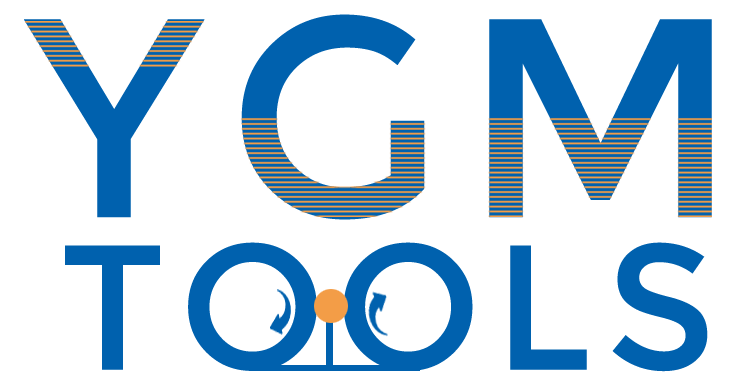
-
 Afrikaans
Afrikaans -
 Albanian
Albanian -
 Amharic
Amharic -
 Arabic
Arabic -
 Armenian
Armenian -
 Azerbaijani
Azerbaijani -
 Basque
Basque -
 Belarusian
Belarusian -
 Bengali
Bengali -
 Bosnian
Bosnian -
 Bulgarian
Bulgarian -
 Catalan
Catalan -
 Cebuano
Cebuano -
 Corsican
Corsican -
 Croatian
Croatian -
 Czech
Czech -
 Danish
Danish -
 Dutch
Dutch -
 English
English -
 Esperanto
Esperanto -
 Estonian
Estonian -
 Finnish
Finnish -
 French
French -
 Frisian
Frisian -
 Galician
Galician -
 Georgian
Georgian -
 German
German -
 Greek
Greek -
 Gujarati
Gujarati -
 Haitian Creole
Haitian Creole -
 hausa
hausa -
 hawaiian
hawaiian -
 Hebrew
Hebrew -
 Hindi
Hindi -
 Miao
Miao -
 Hungarian
Hungarian -
 Icelandic
Icelandic -
 igbo
igbo -
 Indonesian
Indonesian -
 irish
irish -
 Italian
Italian -
 Japanese
Japanese -
 Javanese
Javanese -
 Kannada
Kannada -
 kazakh
kazakh -
 Khmer
Khmer -
 Rwandese
Rwandese -
 Korean
Korean -
 Kurdish
Kurdish -
 Kyrgyz
Kyrgyz -
 Lao
Lao -
 Latin
Latin -
 Latvian
Latvian -
 Lithuanian
Lithuanian -
 Luxembourgish
Luxembourgish -
 Macedonian
Macedonian -
 Malgashi
Malgashi -
 Malay
Malay -
 Malayalam
Malayalam -
 Maltese
Maltese -
 Maori
Maori -
 Marathi
Marathi -
 Mongolian
Mongolian -
 Myanmar
Myanmar -
 Nepali
Nepali -
 Norwegian
Norwegian -
 Norwegian
Norwegian -
 Occitan
Occitan -
 Pashto
Pashto -
 Persian
Persian -
 Polish
Polish -
 Portuguese
Portuguese -
 Punjabi
Punjabi -
 Romanian
Romanian -
 Russian
Russian -
 Samoan
Samoan -
 Scottish Gaelic
Scottish Gaelic -
 Serbian
Serbian -
 Sesotho
Sesotho -
 Shona
Shona -
 Sindhi
Sindhi -
 Sinhala
Sinhala -
 Slovak
Slovak -
 Slovenian
Slovenian -
 Somali
Somali -
 Spanish
Spanish -
 Sundanese
Sundanese -
 Swahili
Swahili -
 Swedish
Swedish -
 Tagalog
Tagalog -
 Tajik
Tajik -
 Tamil
Tamil -
 Tatar
Tatar -
 Telugu
Telugu -
 Thai
Thai -
 Turkish
Turkish -
 Turkmen
Turkmen -
 Ukrainian
Ukrainian -
 Urdu
Urdu -
 Uighur
Uighur -
 Uzbek
Uzbek -
 Vietnamese
Vietnamese -
 Welsh
Welsh -
 Bantu
Bantu -
 Yiddish
Yiddish -
 Yoruba
Yoruba -
 Zulu
Zulu
Thread Rolling Tool Manufacturing Solutions for Enhanced Precision and Efficiency
The Evolution and Impact of Thread Rolling Tool Factories
Thread rolling is a crucial manufacturing process that shapes metal into cylindrical parts with helical ridges. This technique is commonly used in the production of screws, bolts, and other fasteners. With the demand for high-quality, precision-engineered components on the rise, thread rolling tool factories play an essential role in various industries, including automotive, aerospace, and construction.
Historically, thread rolling has evolved from hand-operated machines to fully automated systems that enhance production efficiency and accuracy. Early thread cutting methods were labor-intensive and often led to variations in thread quality. The advent of thread rolling technology revolutionized this process. It utilizes hardened rollers to forge the threads directly onto a blank shaft, resulting in improved mechanical properties due to the cold working of the metal. This process not only enhances the strength of the threads but also reduces waste material, making it a more sustainable option.
A significant advantage of thread rolling is its ability to produce threads that meet strict tolerances. The industry demands tight specifications, and any deviation can lead to product failure. Thread rolling tool factories have invested in advanced machinery that incorporates cutting-edge technology, such as CNC (Computer Numerical Control) systems. These systems allow for precise control over the rolling process, ensuring that every component meets the required standards.
thread rolling tool factories

Furthermore, the factories are continuously innovating their production methods. Advanced materials and coatings are being utilized to enhance the performance of the rolling tools. For example, titanium nitride and cobalt-based coatings provide increased durability and reduce friction, ultimately extending the lifespan of the tooling. As the industry evolves, these factories are also adapting to incorporate eco-friendly practices, minimizing their carbon footprint by recycling metal shavings and optimizing production schedules to reduce energy consumption.
The economic impact of thread rolling tool factories cannot be overlooked. These factories create jobs and stimulate local economies through their operations. Moreover, they provide essential components that support the larger manufacturing ecosystem. The efficiency and reliability of parts produced from these factories directly impact the performance of machinery and equipment across various sectors. As industries continue to grow and evolve, the need for reliable fasteners and bolts becomes even more critical.
However, the thread rolling industry also faces challenges. The competition from low-cost manufacturers, particularly in emerging markets, poses significant threats. To remain competitive, thread rolling tool factories must focus on innovation, quality control, and customer service. Staying ahead of technological advancements and market demands will be crucial for sustaining growth and profitability.
In conclusion, thread rolling tool factories are at the forefront of manufacturing precision components that are integral to numerous industries. Their continuous evolution and commitment to quality have established them as indispensable players in the global supply chain. As the demand for high-quality fasteners increases, these factories will undoubtedly play a pivotal role in shaping the future of manufacturing. Embracing innovation while navigating industry challenges will ensure their enduring success.
